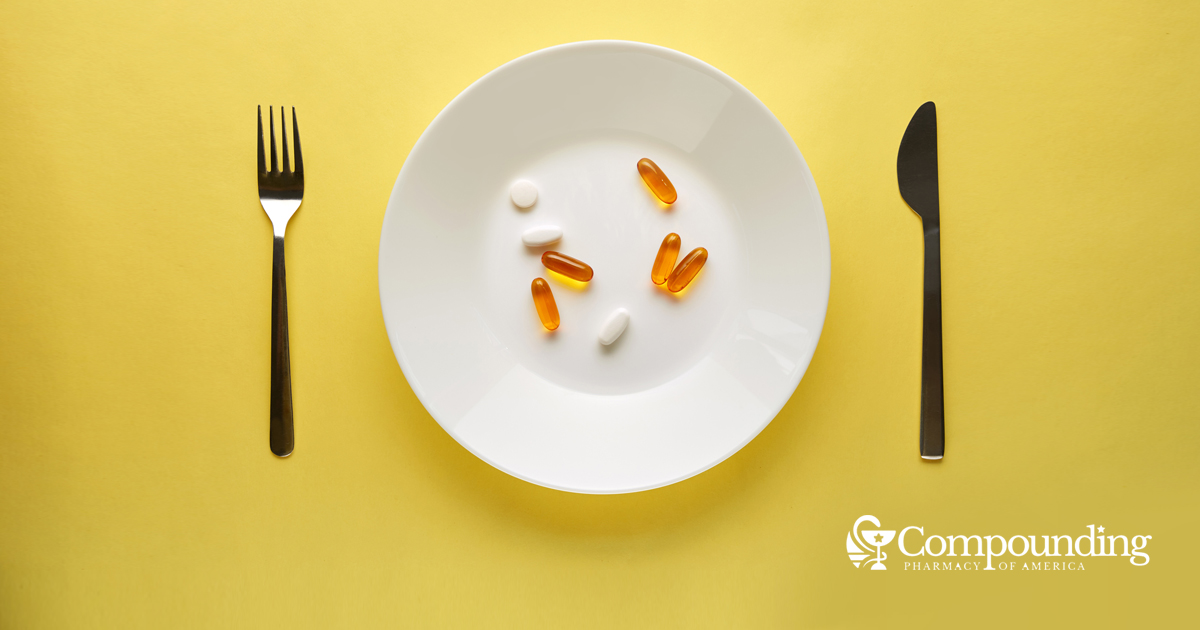
The appeal of diet pills to a person struggling with maintaining a healthy weight makes a lot of sense. People slightly overweight to obese may feel desperate to lose pounds. On television, in print ads, and in big Hollywood movies, most people cast in these roles are shapely. Men are muscular and women are excessively thin. This only adds to an unrealistic body expectation for the average person. When you’re already struggling with weight issues, this can add to already existing problems from excessive weight – which many have been struggling to overcome their whole lives. These problems include low self-esteem, negative body image, and fears of being unloved or unwanted. Severe depression may result from these feelings. Unfortunately, many companies out there will prey on people feeling these emotions.
These thoughts and worries about weight can be troubling, and the idea that an easy-to-take diet pill can fix the problem sounds like a simple solution. Many people think it would be easy just to take a pill or drink some special herbal tea and shed some pounds. It’s easy to think there is nothing to lose by trying a pill found on the internet. After all, what harm could there be in trying these self-proclaimed miracle cures?
The truth is that people around the world waste billions of dollars on diet pills that do not work. This is not great news for people desperate for solutions, and there is more bad news. Giving new pills a try can be costly as well as dangerous to your health. Many poorly regulated or recently withdrawn diet pills are out there, and consuming them can have negative effects. In the worst cases, they can be fatal. Hazardous diet pills must be taken seriously and should be avoided in all situations. The risks are not worth the benefits.
Natural Does Not Mean Safe

The word “natural” conjures up images of pastoral settings and farms harvesting fresh and organic roots, fruits, and vegetables that can be ground into healthy pills that will help the body safely lose weight. This may feel like there is a sense of safety from pills made free of chemicals and synthetic molecules. Each year there are new self-proclaimed natural cures to obesity, and these pills often come with testimonials of their effectiveness. Always be cautious of testimonials because they can be edited to be misleading or made up.
Often, weight loss pills claiming to be natural still have substances in them that are not natural at all. Studies have shown that many of these natural weight-loss pills contain traces of prescription compounds and other man-made substances. These potentially harmful substances are often not listed on the label of these products.
The Food and Drug Administration (FDA) monitors natural supplements; however, the agency uses different guidelines for monitoring natural substances than monitoring prescription medications. Unfortunately, natural weight-loss pills do not need to meet standards as high as those for prescription medications. In fact, many natural weight-loss substances are not examined by the FDA before they are sold.
Purely natural substances may still have negative effects. For example, St. John’s wort is an herbal supplement that you can buy over the counter everywhere, from health food stores to grocery stores to big chain shopping centers. There is some evidence that it can treat depression. However, there are dangers to the herb; it can, as many other substances do, interact with other medicines, causing changes in the medicines’ efficacy and possible side effects. Even more startling is that studies suggest it may cause anxiety, panic attacks, increased aggressive behavior, and even memory loss.
Exaggerated Claims
Be wary of weight loss pills making extraordinary claims. Losing more than two pounds a week may not be healthy, and pills that claim you will lose 30 pounds in 30 days are not only unrealistic but also dangerous. People have made claims for apple cider vinegar and celery juice being miracle weight-loss cures; these claims have proven to be greatly exaggerated. Unfortunately, people hoping to drop pounds may quickly invest a lot of money in these false solutions.
Dangerous Diet Pills
The worst-case scenario of dangerous diet pills is that they can cause death. Other pills have been found to cause cancer. Even if some diet pills’ adverse effects are less severe, they are by no means safe to consume. Hazardous diet pills include symptoms from anxiety and depression to high blood pressure to damage to heart valves. Therefore, every diet pill you choose to use must be deemed safe and bought from a reputable source.
Other troubling consequences of dangerous diet pills can include addiction and overdose.
Trying to control body weight through diet pills is complicated. Many intricate systems interact with tablets meant to lose weight. If taken incorrectly, there can be long-term metabolism problems.
Below are some diet pills to avoid at all costs.
Belviq
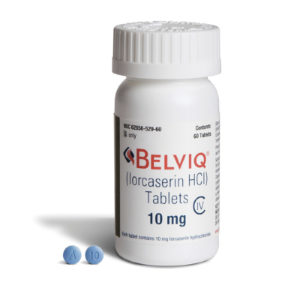 When the FDA first approved Belviq in 2012, the results looked promising. The bar for the FDA to approve weight-loss drugs is high, and this one seemed to meet all the requirements. People did, in fact, lose weight using this drug, which targeted serotonin receptors in the brain that made a person feel full after eating. This sounded like a win, and it may be tempting for people to try it even today. However, this drug must be avoided. Side effects include dizziness, lack of energy, nausea, constipation, and dry mouth. Its effects on people with diabetes are especially adverse.
When the FDA first approved Belviq in 2012, the results looked promising. The bar for the FDA to approve weight-loss drugs is high, and this one seemed to meet all the requirements. People did, in fact, lose weight using this drug, which targeted serotonin receptors in the brain that made a person feel full after eating. This sounded like a win, and it may be tempting for people to try it even today. However, this drug must be avoided. Side effects include dizziness, lack of energy, nausea, constipation, and dry mouth. Its effects on people with diabetes are especially adverse.
Things started looking really bad for Belviq when it was suspected of causing tumor growth in animals. Over the years, it became linked to an increased risk of cancer, especially lung, pancreatic, and colorectal. The drug was voluntarily recalled in 2020. It may be tempting to try because there are some results, but this dangerous tablet is not worth the risk. There are better options out there.
Meridia
 The appetite suppressant sibutramine was sold under the name Meridia. Because it suppressed appetites, users could lose weight when used with accompanying changes in diet and exercise. This may sound appealing to some, but dangers began to emerge from this drug’s use. It can harm the cardiovascular system and has been shown to cause strokes.
The appetite suppressant sibutramine was sold under the name Meridia. Because it suppressed appetites, users could lose weight when used with accompanying changes in diet and exercise. This may sound appealing to some, but dangers began to emerge from this drug’s use. It can harm the cardiovascular system and has been shown to cause strokes.
While this diet pill was recalled in many countries around 2010, it is still available in some places in the world. This medicine must never be used.
The FDA and other international regulatory bodies cited sibutramine as capable of causing:
-
- Headaches
- Nausea
- Insomnia
-
- Dizziness
- Upset Stomach
- Confusion
- Depression
- Restlessness
- Suicidal Thoughts
Qnexa
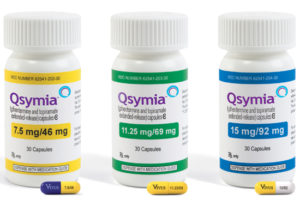
Qnexa is an interesting case because the pill is part antidepressant, the same antidepressant used to help people quit smoking and treat addiction to opiates and alcohol. While there was evidence that it successfully suppresses appetites, it is also dangerous, especially for pregnant women. There were major concerns that Qnexa could cause major congenital disabilities in babies if the mother took it while pregnant.
Because of the effects on pregnancy, women in childbearing years should never take this diet pill. However, the FDA is revisiting its effectiveness and considering Qnexa again for specific situations. Until the FDA decides it is safe and who can safely take it, it is best to avoid it.
Potential side effects include:
- Insomnia
- Seizures
- Heart Fluttering
- Numbness and Tingling
- Blurred Vision
- Headaches
- Birth Defects (if taken while pregnant)
- Kidney Stones
- Depression, Anxiety or Suicidal Thoughts
The Japanese Weight Loss Pill
 This diet pill was marketed in colorful boxes and came in many different colors. The vibrant packaging may have suggested it would be a helpful supplement complementing a healthy lifestyle. Nothing could be farther from the truth. This deceiving weight loss pill contained a mixture of dangerous substances and putting them together made these especially problematic.
This diet pill was marketed in colorful boxes and came in many different colors. The vibrant packaging may have suggested it would be a helpful supplement complementing a healthy lifestyle. Nothing could be farther from the truth. This deceiving weight loss pill contained a mixture of dangerous substances and putting them together made these especially problematic.
Chemicals included sibutramine, which had been found to have many adverse effects on the heart and cardiovascular system. Another drug in the mixture was benzocaine, which may cause methemoglobinemia. If that sounds scary, it should because it affects the oxygen carried by red blood cells through your body. The lack of oxygen in the body can lead to death.
The FDA has recommended that you throw out this pill immediately. It is much too dangerous to take and is in no way a solution to weight loss.
The Brazilian Diet Pill
 The most worrisome part of this diet pill is that it contains ingredients that elevate mood as well as ingredients that are depressants. When used together, the results can be toxic. People who have used these pills have experienced heightened mood swings and personality changes. Another symptom of this drug is hypersensitivity. The FDA has condemned this drug in the strongest possible terms.
The most worrisome part of this diet pill is that it contains ingredients that elevate mood as well as ingredients that are depressants. When used together, the results can be toxic. People who have used these pills have experienced heightened mood swings and personality changes. Another symptom of this drug is hypersensitivity. The FDA has condemned this drug in the strongest possible terms.
Clenbuterol
 Also known as Clen and previously marketed under the names Ventipulmin and Spiropent, Clenbuterol is illegal for human consumption in the United States. The International Olympic Committee banned Clenbuterol after discovering that athletes used it as a performance enhancer. Clenbuterol is used to treat horses in the United States with respiratory issues. Clen’s side effects include arrhythmia, chest pain, diarrhea, nausea, nervousness, hyperthyroidism, muscle tremors, dangerous blood pressure extremes in both highs and lows, and headaches.
Also known as Clen and previously marketed under the names Ventipulmin and Spiropent, Clenbuterol is illegal for human consumption in the United States. The International Olympic Committee banned Clenbuterol after discovering that athletes used it as a performance enhancer. Clenbuterol is used to treat horses in the United States with respiratory issues. Clen’s side effects include arrhythmia, chest pain, diarrhea, nausea, nervousness, hyperthyroidism, muscle tremors, dangerous blood pressure extremes in both highs and lows, and headaches.
Dinitrophenol
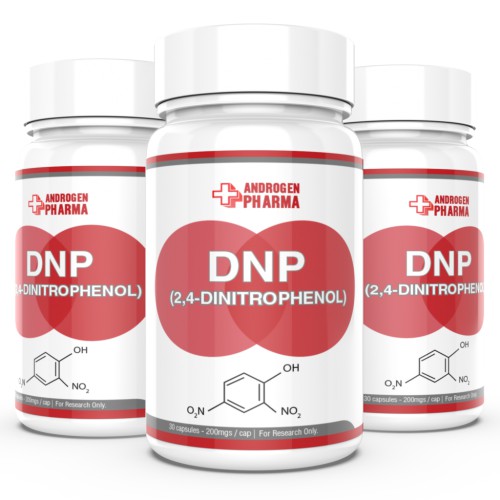 Also known as DNP, Dinitrophenol literally cooks users from the inside out. The FDA banned the drug for human consumption in 1939. It was originally used in the manufacturing of explosive compounds and used as a chemical pesticide, but people sought the drug for its weight loss capabilities. DNP speeds up the body’s metabolism and raises the body’s temperature, causing intense sweating, lesions, respiratory difficulty, bleeding lips, and the formation of cataracts. DNP use claimed more than 60 lives.
Also known as DNP, Dinitrophenol literally cooks users from the inside out. The FDA banned the drug for human consumption in 1939. It was originally used in the manufacturing of explosive compounds and used as a chemical pesticide, but people sought the drug for its weight loss capabilities. DNP speeds up the body’s metabolism and raises the body’s temperature, causing intense sweating, lesions, respiratory difficulty, bleeding lips, and the formation of cataracts. DNP use claimed more than 60 lives.
Ephedrine
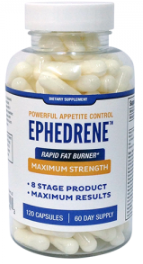 This compound was originally used in ancient China to treat respiratory problems such as asthma and also functions as an appetite suppressant and stimulant. In 2005, the FDA banned ephedrine alkaloids marketed as weight loss supplements, and several professional sports organizations also banned ephedrine after it became widely known as a performance-enhancing drug.
This compound was originally used in ancient China to treat respiratory problems such as asthma and also functions as an appetite suppressant and stimulant. In 2005, the FDA banned ephedrine alkaloids marketed as weight loss supplements, and several professional sports organizations also banned ephedrine after it became widely known as a performance-enhancing drug.
Combining ephedrine with other stimulants (such as caffeine) is sometimes fatal, and the side effects of the drug include a heightened risk of:
-
- Heart Attack
- Stroke
- Cardiac Arrhythmia
-
- Nausea
- Tremors
- Dizziness
- Dry Mouth
- Anxiety
- Insomnia
Fen-phen
 Named for its two main active ingredients, Fenfluramine and Phentermine, Fen-Phen became incredibly popular in the 1990s. The FDA banned the drug in 1997 after linking it to valvular heart disease, pulmonary hypertension, and increased pulmonary artery pressure.
Named for its two main active ingredients, Fenfluramine and Phentermine, Fen-Phen became incredibly popular in the 1990s. The FDA banned the drug in 1997 after linking it to valvular heart disease, pulmonary hypertension, and increased pulmonary artery pressure.
Contrave
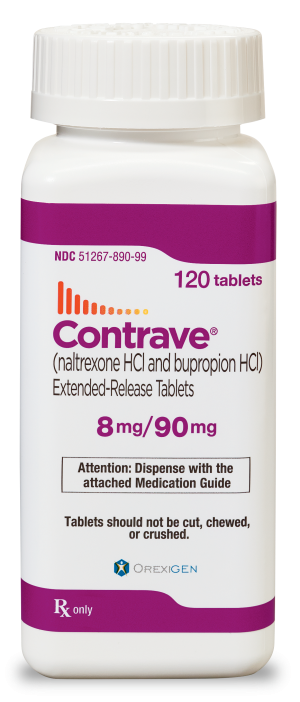 Contrave is a combination of existing drugs that have already gained FDA approval, such as naltrexone (a drug used to treat opiate addiction) and bupropion (an antidepressant used as a smoking-cessation treatment). Although this compound or one of its several successors may eventually gain approval and hit the market, it’s important to be wary of the dangerous side effects, including potential heart valve damage and alteration in user metabolism and mood.
Contrave is a combination of existing drugs that have already gained FDA approval, such as naltrexone (a drug used to treat opiate addiction) and bupropion (an antidepressant used as a smoking-cessation treatment). Although this compound or one of its several successors may eventually gain approval and hit the market, it’s important to be wary of the dangerous side effects, including potential heart valve damage and alteration in user metabolism and mood.
Beware Of Dangerous Diet Pills
If you want to lose weight, the best methods are regular exercise and a balanced low-calorie diet rich in nutrients. Our society is incredibly fast-paced, and instant gratification is the norm. However, never sacrifice your personal health and safety for the sake of looking better faster. Always ask your healthcare provider about any supplements, and consult a nutritionist or dietitian to construct a healthy weight loss plan.
If you’re concerned hormones might be causing weight gain, instead of experimenting with diet pills, start with an at-home test kit instead.
 The Weight Management Profile identifies hormonal imbalances that contribute to obesity, weight gain, and difficulty losing or sustaining a healthy weight. Used as a screening tool, it serves as an early indicator of insulin resistance and risks for metabolic syndrome and diabetes. Results can be expected 5-7 business days after the test is received.
The Weight Management Profile identifies hormonal imbalances that contribute to obesity, weight gain, and difficulty losing or sustaining a healthy weight. Used as a screening tool, it serves as an early indicator of insulin resistance and risks for metabolic syndrome and diabetes. Results can be expected 5-7 business days after the test is received.
You can purchase this Weight Management Test Kit here from our online Health and Wellness shop.
*Editor’s Note: This article was originally published Sep 26, 2016 and has been updated May 6, 2021.
Chief Operating Officer, The Compounding Pharmacy of America
Matthew Poteet, Pharm.D. graduated with Honors from Lee University with a Bachelors of Science in Biological Science. After his undergraduate training, he completed the Doctor of Pharmacy program at Mercer University Southern School of Pharmacy, graduating in 2004. Dr. Poteet has spent much of his pharmacy career on staff at two of the most prestigious academic teaching hospitals in the Southeast; Emory University in Atlanta and Vanderbilt University Medical Center in Nashville. At these institutions he received extensive experience and training in sterile products compounding.
He returned home to East Tennessee in 2010, where he has held the position of Pharmacy Director at two sterile products pharmacies in Knoxville. Matthew lives in Knoxville with his wife, Chris. Dr. Poteet is Tennessee’s first Board Certified Anti-Aging Pharmacist by the American Academy of Anti-Aging Medicine.
 Subscribe to Our Newsletter
Subscribe to Our Newsletter


